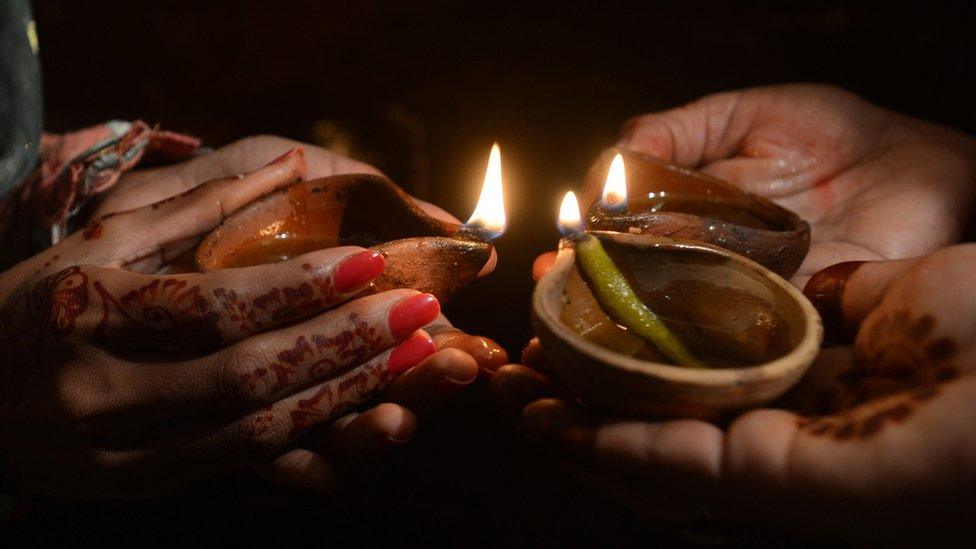India court bans fireworks in Delhi after Diwali smog
- Published
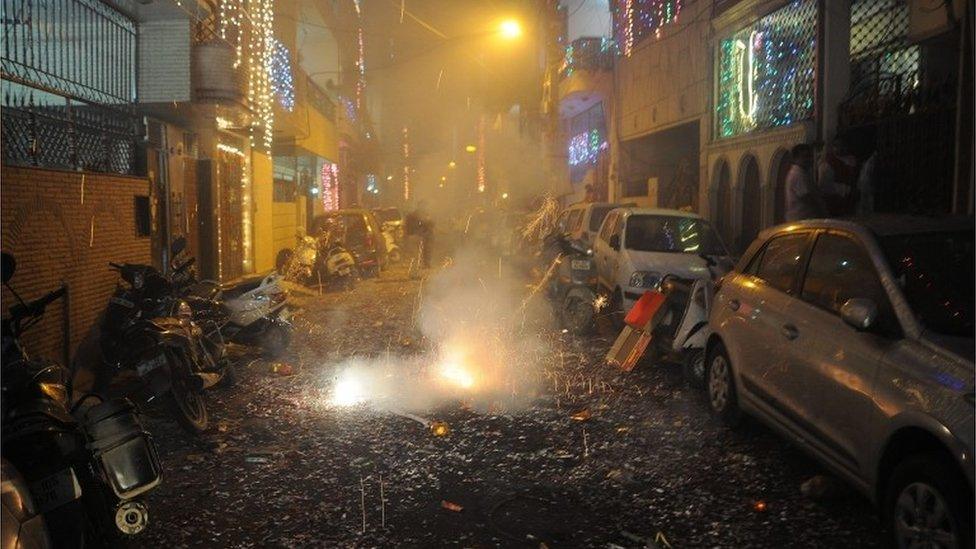
Diwali is one of most popular festivals in India
India's Supreme Court has stopped the sale of firecrackers in the capital, Delhi, after concerned parents filed a petition on behalf of their babies.
The parents argued their children's lungs were not yet developed enough to handle the increasing pollution in the city.
Delhi, with 16 million people, is one of the world's most polluted cities.
In recent years it has got noticeably worse around Diwali, when huge quantities of fireworks are set off.
On Friday, the Supreme Court suspended the "possession, stocking and selling" of fireworks in Delhi and its neighbouring suburbs "until further orders".
The court also directed pollution control authorities to "study harmful effects of materials used in firecrackers in three months".
Diwali fireworks 'worsen Delhi pollution'
Diwali fireworks choke Delhi, angering Indians
Diwali in Delhi: A colourful night turns smoggy grey
The ban has been welcomed by Gopal Sankaranarayanan, the lawyer representing the three sets of parents, who pointed to the rise in pollution following October's celebration.
"This year, shortly after Diwali season was over, we had the worst instance of pollution in 20 years," he told the BBC. "It was pretty bad in the 10 days to two weeks following Diwali."
In fact, pollution in Delhi increased to nearly 10 times the safe level after Diwali, the most important Hindu festival in north India. causing panic and outrage.
Residents awoke from a night of colourful fireworks to find the city covered in a thick grey blanket of smog.
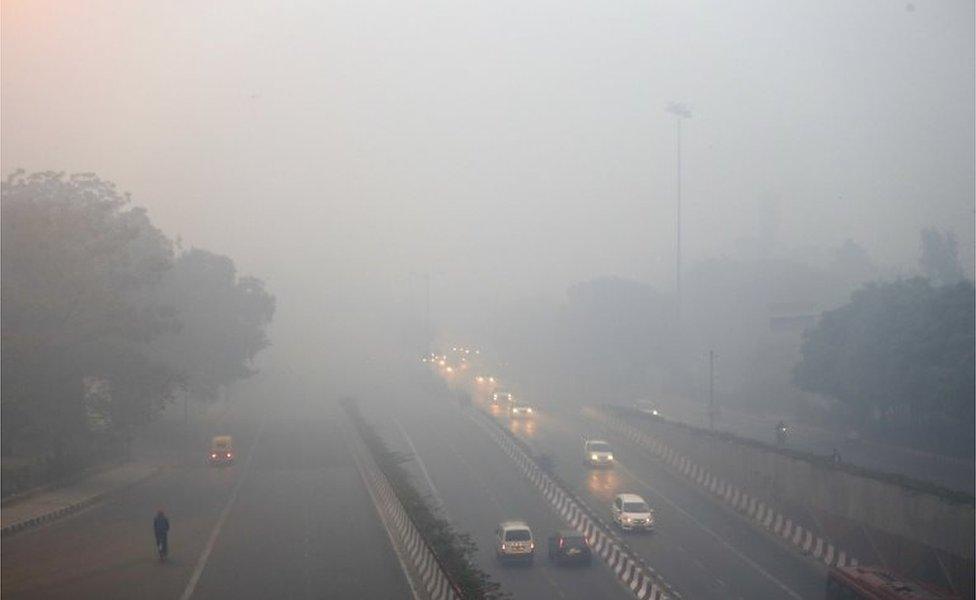
Delhi was covered in a thick, grey blanket of smog the day after Diwali
There have been several campaigns in the past asking people to use fewer fireworks during the festival, but these have not met with much success.
Despite the victory, Mr Sankaranarayanan was critical of the government's response to date, pointing out that other countries have tackled the pollution issue head-on.
"The first step in any of this is a source apportionment study over a 12-month period so you know exactly what is causing the highest levels of pollution over the year," he said.
"China did it when it was facing problems, Indonesia did it, Dubai does it - but we don't. And still to date, despite [Delhi] being called the most polluted city in the world, the government has not commissioned a source appointment study."
- Published31 October 2016
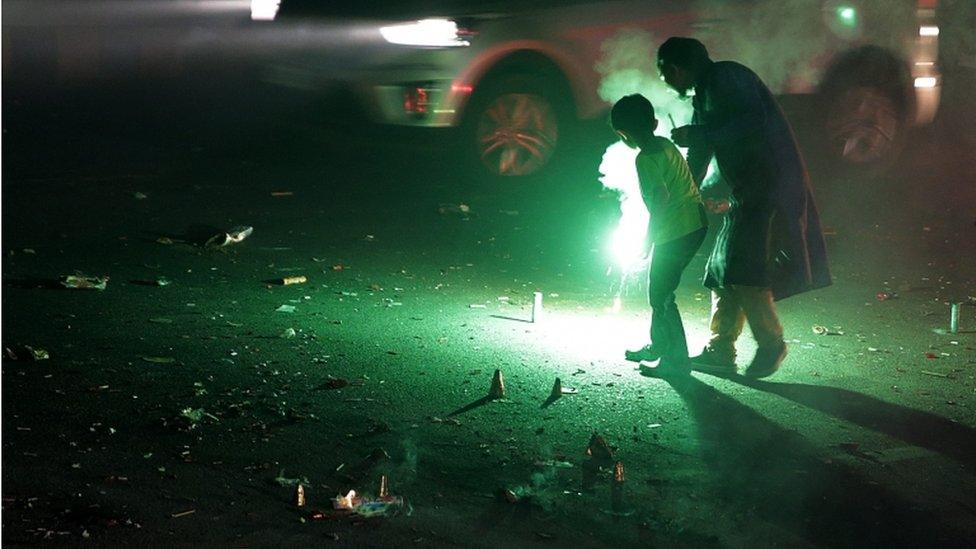
- Published30 October 2016
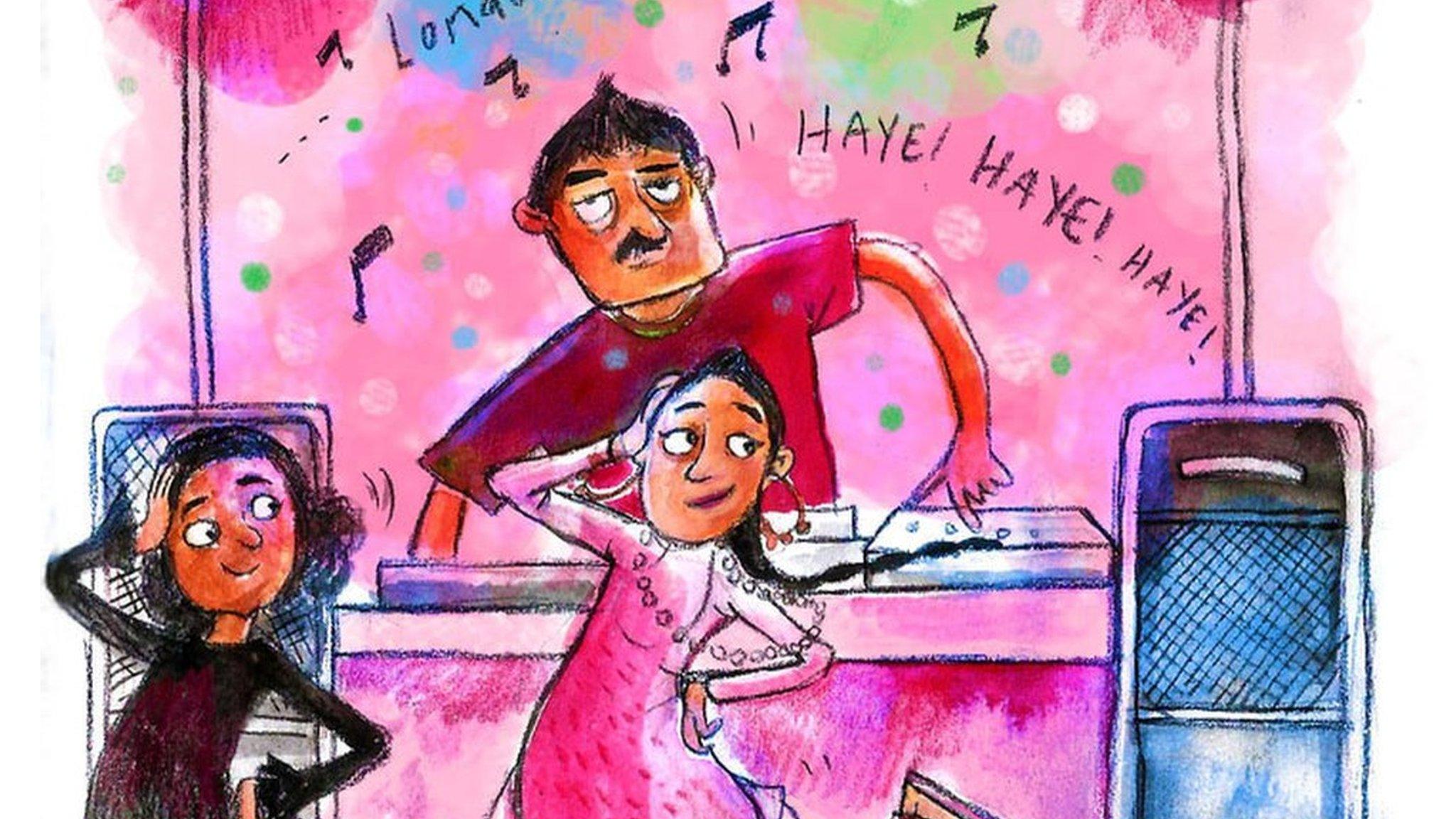
- Published11 November 2015
